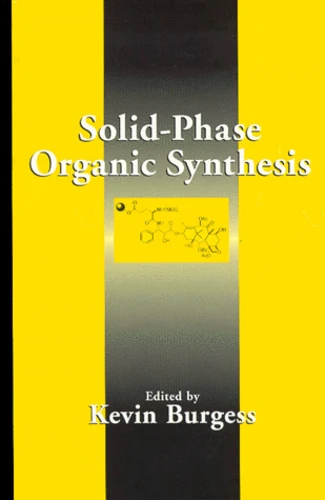Solid - Phase Organic Synthesis
Par :Formats :
- Paiement en ligne :
- Livraison à domicile ou en point Mondial Relay indisponible
- Retrait Click and Collect en magasin gratuit
- Réservation en ligne avec paiement en magasin :
- Indisponible pour réserver et payer en magasin
- Nombre de pages277
- PrésentationRelié
- Poids0.6 kg
- Dimensions15,9 cm × 23,6 cm × 2,6 cm
- ISBN0-471-31825-6
- EAN9780471318255
- Date de parution01/01/2000
- ÉditeurWiley
Résumé
Efficient, high-throughput chemistry is now the focus of many research laboratories. Solid-phase organic syntheses are central to many of these combinatorial and parallel screening methodologies. Consequently, they have been a major scientific theme of the 1990s and promise to remain prominent for the first part of the new millennium. Indeed, a bewildering number of papers have entered the literature on this topic; some report minor modifications enabling, transformation of solution-phase methods to a solid support, while others report major innovations.
Solid-Phase Organic Synthesis collects, highlights, and critiques some of the key developments in the field. Leading practitioners explain different perspectives on diverse aspects of the area. Specific topics covered include:
• Syntheses of guanidines
• Palladium-catalyzed C-C bond forming reactions
• SnAr reactions for the formation of heterocycles
* Sequence-specific arylalkyne oligomers
* Resin-supported capture agents and other reagents
• Synthesis on pins
• Monitoring of supported reactions using IR
• Solid-phase syntheses of natural product derivatives
Efficient, high-throughput chemistry is now the focus of many research laboratories. Solid-phase organic syntheses are central to many of these combinatorial and parallel screening methodologies. Consequently, they have been a major scientific theme of the 1990s and promise to remain prominent for the first part of the new millennium. Indeed, a bewildering number of papers have entered the literature on this topic; some report minor modifications enabling, transformation of solution-phase methods to a solid support, while others report major innovations.
Solid-Phase Organic Synthesis collects, highlights, and critiques some of the key developments in the field. Leading practitioners explain different perspectives on diverse aspects of the area. Specific topics covered include:
• Syntheses of guanidines
• Palladium-catalyzed C-C bond forming reactions
• SnAr reactions for the formation of heterocycles
* Sequence-specific arylalkyne oligomers
* Resin-supported capture agents and other reagents
• Synthesis on pins
• Monitoring of supported reactions using IR
• Solid-phase syntheses of natural product derivatives

